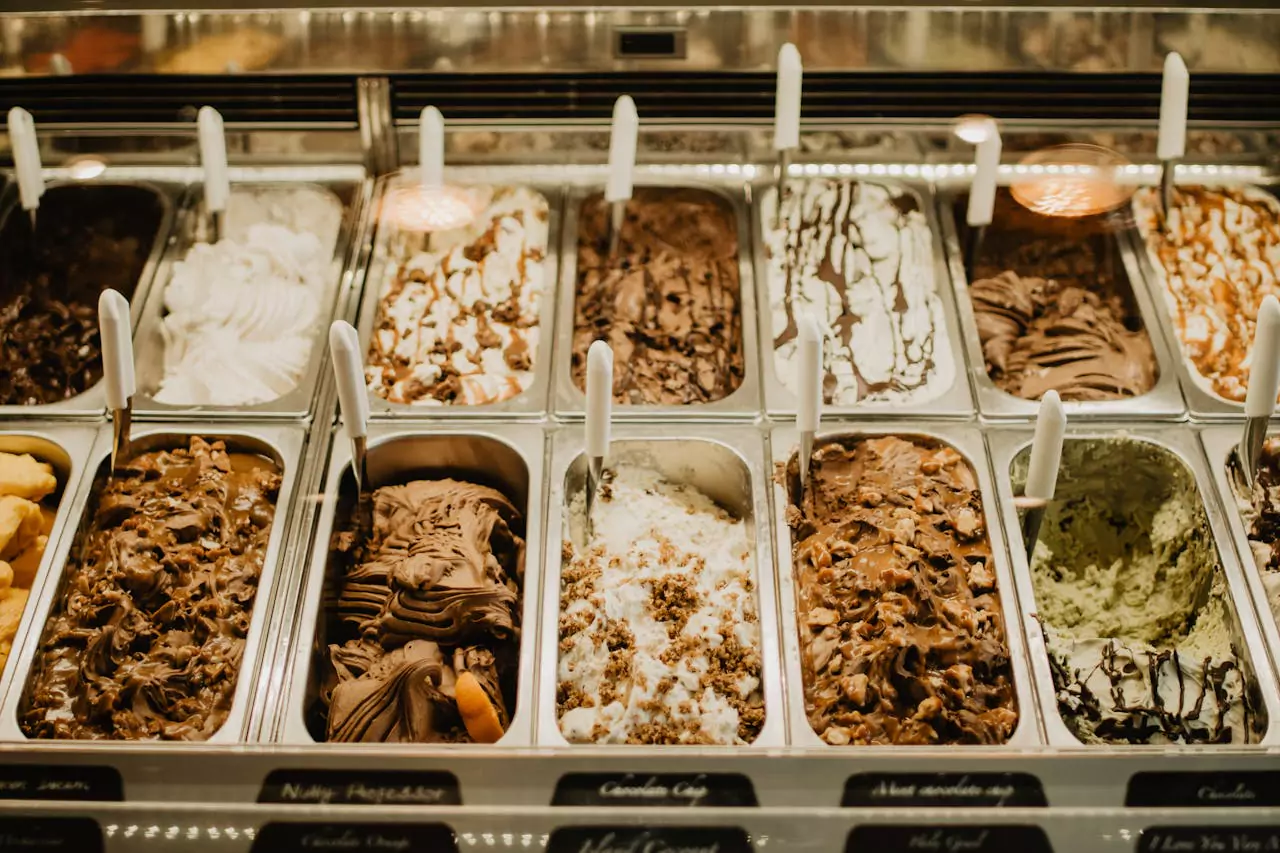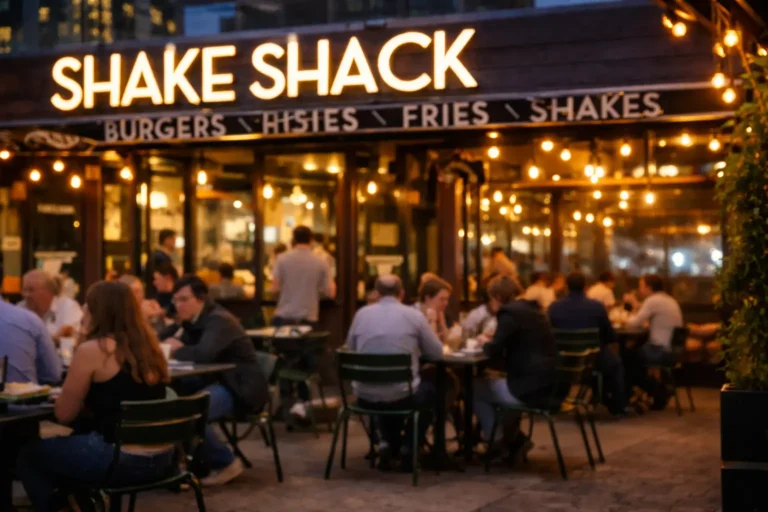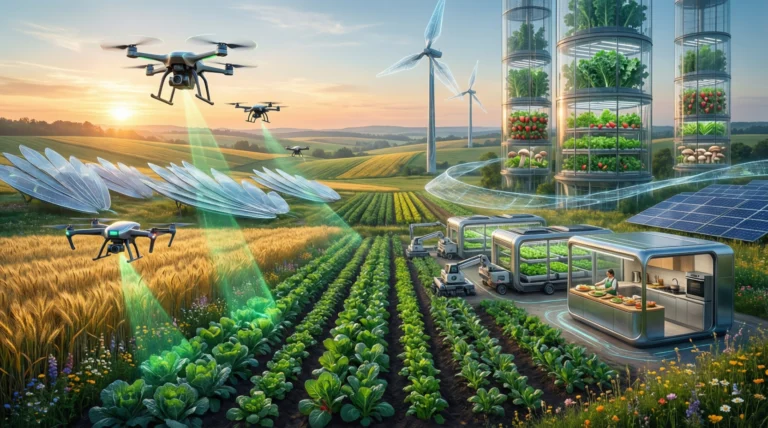
Unilever’s ice cream supply chain is undergoing a groundbreaking transformation, leveraging AI and digital tools to adapt to changing weather patterns, optimize inventory, minimize waste, and identify growth opportunities in an inherently seasonal business. Spanning 35 factories and approximately 3 million freezers across 60 countries, the supply chain is becoming more agile and responsive than ever.
AI-Driven Weather Analysis to Cut Waste
For Unilever’s Ice Cream Supply Chain Long-Term Planning Lead, Elif Çakır, weather isn’t just a topic for small talk—it’s a critical business variable. In regions with highly seasonal ice cream sales, consumer demand is profoundly influenced by weather conditions. For instance, during a European summer month like June, even a 1°C rise in temperature can significantly alter sales forecasts.
To address this variability, Unilever’s AI systems analyze weather data to adjust sales predictions. By incorporating AI insights, the company has achieved more precise volume forecasts, reducing waste and improving overall efficiency. In Sweden, for example, forecast accuracy has improved by 10%, allowing production lines to align more closely with market demands.
“Using AI, we understand where to sell, how much to sell, in which freezer cabinet to sell, and when to send orders in the most efficient way,” Elif explains. This enhanced forecasting capability has increased service levels to consumers, placing Unilever in the top tier in most of its markets.
Enhancing Production Planning to Meet Market Needs
AI is not only improving forecast accuracy but also streamlining production planning. With better predictions, production lines can be adjusted to meet market demands, leading to cost reductions and optimized operations.
Unilever’s approach ensures the entire supply chain—from factory production lines to the estimated 3 million freezer cabinets—is prepared to respond to fast-changing weather patterns. This agility has allowed the company to adapt to unexpected weather conditions while maintaining efficiency and minimizing disruptions.
Agile Responses to Weather Variability
Production volumes in the ice cream supply chain are typically based on forecasts developed at the beginning of the year. However, AI now provides probabilistic temperature ranges, enabling more accurate demand predictions in key markets. This ensures long-term plans and production volumes are robust enough to accommodate potential changes in weather conditions.
For short-term weather anomalies like unexpected heatwaves, AI-driven inventory systems allow Unilever to identify stock locations and reallocate key products swiftly. The company also optimizes delivery routes for its refrigerated fleet, reducing energy consumption and enhancing sustainability.
Unilever Ice Cream’s Revolution How AI is Transforming the Entire Supply Chain Remarkable Precision

Reducing Waste and Improving Manufacturing Efficiency
AI’s impact extends to manufacturing, where it enhances production line efficiency and reduces waste. By utilizing live AI systems that monitor and adjust optimal variables, Unilever’s ice cream factories can minimize production waste and improve overall performance.
This streamlined approach is saving up to 10% of certain raw materials, including high-value ingredients like vanilla and cocoa. These cost savings not only improve profitability but also contribute to Unilever’s broader sustainability goals by reducing resource consumption.
Real-Time Inventory Updates from Freezers
One of the most transformative innovations in Unilever’s supply chain is the deployment of image capture and AI technology in freezer cabinets. Currently, 100,000 freezers are AI-enabled, with further rollouts underway. This technology provides real-time stock insights, eliminating the need for manual forecast generation.
Elif describes this as a “game-changer,” noting that real-time inventory data allows for more dynamic and responsive decision-making. By knowing exactly what’s in stock at any given moment, Unilever can better manage inventory levels, reduce waste, and meet consumer demand more effectively.
Industry Recognition for AI Excellence
Unilever’s innovative use of AI and digital tools has not gone unnoticed. In 2024, the company was recognized by Gartner as one of four Supply Chain Masters for its excellence in managing one of the world’s largest producer-to-consumer cold chains. This marks the sixth consecutive year that Unilever’s supply chain teams have received this prestigious accolade.
Elif reflects on the journey: “When I joined Unilever, I made forecast calculations using formulae I learned in college. Now, strategic use of AI and digital tools means my team is freed from repetitive tasks like number crunching. Instead, we focus on developing agile strategies that drive growth.”
Shaping the Future of Ice Cream Supply Chains
Digital transformation is at the heart of Unilever’s vision for the future of its ice cream business. By leveraging real-time data, optimizing logistics, and equipping employees with advanced skill sets, the company is redefining its supply chain to meet the demands of a rapidly changing market.
The integration of AI and digital tools has already yielded significant benefits, from improved forecast accuracy and reduced waste to enhanced operational efficiency and higher sales. As Unilever continues to roll out these innovations, the future of its ice cream supply chain looks both promising and sustainable.
By embracing cutting-edge technology, Unilever is not only staying ahead in a competitive market but also setting a benchmark for how AI can revolutionize supply chains across industries. The result is a more efficient, responsive, and sustainable supply chain that delivers value to consumers, employees, and stakeholders alike.





